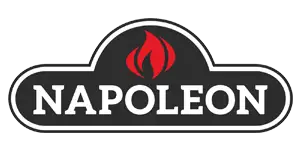
Can a Heat Pump Replace a Furnace for Winter Heating?
How Heat Pumps Work in Winter
A heat pump is an energy-efficient system that works by transferring heat from one place to another. In the winter, it extracts heat from the outdoor air (even in cold temperatures) and transfers it indoors to warm your home. This is in contrast to a furnace, which generates heat through the combustion of fuel or electrical resistance and then distributes it through the home.
One of the main advantages of heat pumps is their ability to function as both a heating and cooling system, making them versatile year-round solutions. During colder months, they rely on the process of compression and expansion of refrigerant to extract heat from the outside and release it inside. While they are highly efficient, heat pumps do lose some effectiveness as temperatures drop below freezing.
Can a Heat Pump Fully Replace a Furnace?
For homeowners in regions with mild to moderate winters, a heat pump can often replace a furnace entirely. In fact, modern heat pump technology is highly efficient and can provide sufficient warmth even during colder temperatures. However, in areas with harsh winters and extremely low temperatures, a furnace may still be the better choice for consistent, reliable heat.
Many people in colder climates opt for a dual-fuel system, which combines a heat pump and a furnace. In this system, the heat pump provides heat during milder days, while the furnace takes over during extreme cold. This hybrid system offers both energy efficiency and reliability.
How Hybrid Systems Work
In a dual-fuel system, the transition between the heat pump and furnace is managed automatically based on outdoor temperatures. A smart thermostat monitors the temperature and determines which system will operate for optimal efficiency and comfort. During milder days, the heat pump efficiently extracts heat from the outdoor air to warm your home, reducing energy consumption and costs. When temperatures drop below a certain threshold—typically when the heat pump becomes less effective—the system seamlessly switches to the furnace. This ensures consistent and reliable heat during extreme cold while maximizing energy savings when conditions allow.
By combining the strengths of both systems, hybrid setups provide a perfect balance of efficiency and performance, making them an excellent option for homeowners in colder climates.
Energy Efficiency and Cost Savings
One of the main reasons homeowners are turning to heat pumps is their high energy efficiency. Heat pumps can deliver up to three times more heat than the energy they consume, whereas furnaces, depending on the model, may have a lower efficiency. Over time, this can lead to significant savings on energy bills.
Additionally, heat pumps are environmentally friendly, as they do not burn fossil fuels. This means they produce fewer emissions, which can reduce your home's carbon footprint.
Trust Maple Air for Your HVAC Needs
If you're considering replacing your furnace with a heat pump, the professional and highly skilled team from Maple Air is here to help. We specialize in providing customized heating solutions tailored to your home’s specific needs. Whether you’re upgrading to a heat pump or exploring a hybrid system, our experts can guide you through the process to ensure optimal comfort and energy savings all winter long. Contact us now to schedule your consultation and stay warm this winter with Maple Air!














